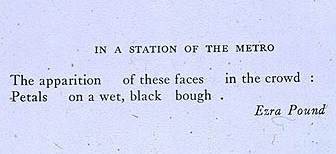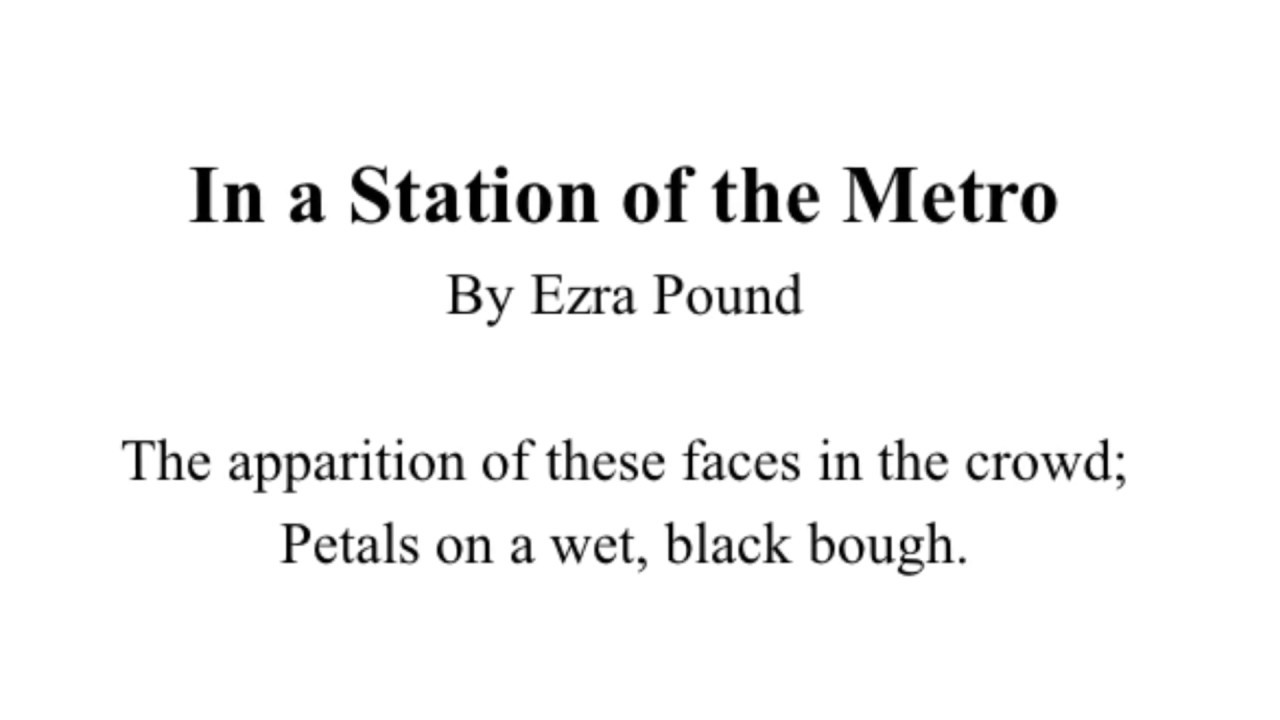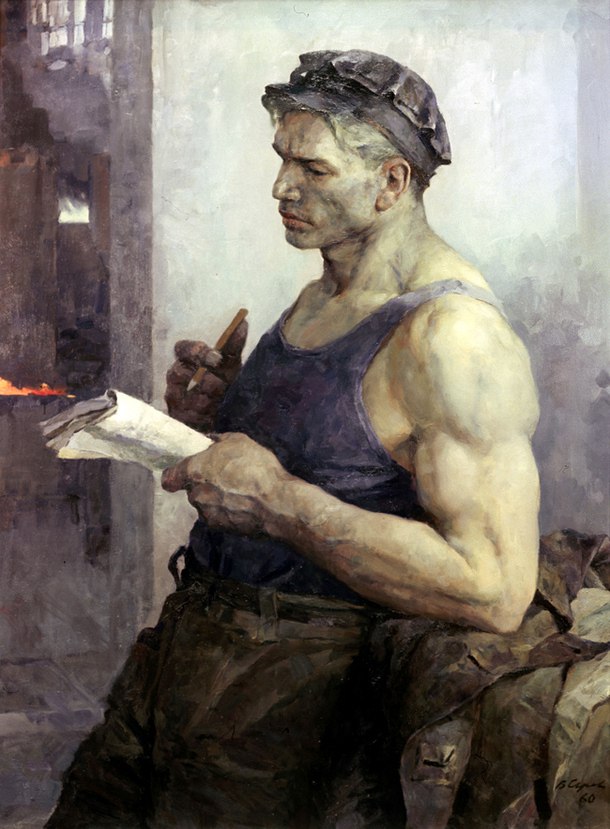I got made fun of as a child by a parent for doing art and just… never did any ever afterwards. I primarily hang around artists tho and would like to relate to them more, but none of them do creative writing. I’ve read numerous grammar books, so that won’t be a problem, but none really go in to how to construct a sentence, paragraph, page, chapter, plot, etc. I’ll happily take any advice on the subject, really anything you can think for someone with actually zero experience.
Good advice I’ve gotten so far is to just write basically whatever. Also, people who are visual artists and creative writers, which was “easier” for you to become fluent?
Every writer has their own approach and will develop their own voice with practice. There used to be more rigid rules around writing fiction, but nowadays these have been completely abolished and you can write however you like. For example in French literature (and I think English as well) it used to be that plays were written in a certain rhyme structure. Since the 60s or so with the new movements in literature, they decided you can just do whatever you like. There’s stream of consciousness writing for example. I’m not saying all these methods are popular though, but they certainly exist and can be used, mixed and remixed 😁
In the late 19th century novels used to be published as serials in magazines, usually one chapter at a time. For most of human history fiction was a work of command, made after an order was placed. Therefore chapters used to fit a certain length set by the editor. Before that, artists worked for the aristocracy who would commission them periodically.
Nowadays you can do whatever you like, use or not use tropes, change narrators, make anyone or anything a narrator, there’s no strict rules to it.
There’s not one true way of looking at it. If you build it, people will come. As a designer I like asking myself “what am I writing here, what’s new, what am I bringing? Who am I writing for? What do I want to convey?” but you can also just write for yourself, the kind of stories you’d like to read yourself. They don’t always have to make it out of the drafts.
Recently I’ve been thinking about the use of the canvas (the page and the words). The role of the narrator, and what the narrator can and can’t be. I almost never write in the third person because to me the narrator has to exist so that they can relay the events. But maybe I’m getting into wiseposting shit and I don’t want to turn you away from writing lol.
You can also look at poetry for this. It used to be very strict in terms of rules (12 syllables to a line, AABB scheme or ABAB if you were feeling inspired, rich rhymes only – which in french are rhymes made over 3 sounds, because in French rhymes are stricter than in English where sound-alikes can rhyme). Then after the 50s and 60s, again, the writing revolution made it so that you can write poetry any way you like. You don’t have to follow any rules. They also started playing with the space on the page. Look at these two layouts of the same poem:


The spacing of the words is different, the case is different (e.g. all caps in the title for one), the position of the author’s name is different as well, making you naturally read it in a different cadence. “In a station of the metro by ezra pound the apparition of these faces” versus “In a station of the metro the apparition of these faces”.
One thing I can recommend, if you want to write stories, is to plan them out as much as possible. This is something most authors do, keeping notes etc. that don’t make it in the end product. They used to do that even more when novels were serialized, and would normally have the general gist of it written down, with the ‘details’ (the actual writing) done on the spot. This is something they taught us in school, which I absolutely hated back then (four times a year we had to pick a book, read through it, then make all those charts and lists like in that meme), but it’s definitely valuable for an author. You have to know at all times who’s who, who’s who to whom, what they did, how they act like, what’s gonna happen in the novel and why, etc.
My manner of writing is to have a general gist of what I want to write about, usually spurred on by a single idea, and then make it up as I go along so I surprise even myself with what I can come up for the story lol. It’ll depend on how you like to work, but definitely those charts and lists help provide some coherence to what you write and avoid the “actually Dumbledore is gay I just never wrote it in” retcon.
I love Ursula Le Guin’s Steering the Craft
Best way to learn how to write is to read, a lot.
Not only read, but live.
Go travel, talk to people, do stupid shit; the writing will flow.
Yep. Just like with writing music, painting, or any art, the greatest teacher isn’t books about the process, it’s the work of other artists.
Find stories you like, read them over and over, and they’ll help you find your voice.
I’m not an artist or imo a very creative person but i did try my hand at a bit of creative writing when i was younger. What i concluded is that you can learn all the theory there is to learn and still not be a good writer. At the end of the day the best recommendation i can make is to just read and read a lot. After a few hundred books you will get an instinctive feel for what is good writing and what isn’t, what feels natural and what doesn’t.
I think a lot of writers start by emulating the styles of other more experienced writers and over time they develop their own style. Of course for that it is essential that you get a lot of practice, so you should just start writing even if it’s bad at first and you will naturally improve time. Really this goes for pretty much any creative activity. I find it’s the same for playing an instrument, and i assume also for visual arts but that is out of my range of experiences.
Stephen King wrote “On Writing” about his process, might be worth looking up.
Grammar is iffy. English has so many contradictory rules, trying to approach it from a formal rules based prospective is very difficult.
King and I both agree on “just write whatever”. You might try picking a writer you like and re-writing part of their work. Try out different word choices, try to mix it up. Let their writing be a framework for you to play in and see what you can come up with.
You’re already making coherent posts that clearly communicate your question and the context in which you’re asking that question. You’re starting from a good place.
I second the person who recommended On Writing. Mostly for the idea of learning techniques and approaches as “tools in your toolbox”, not as dogma. Beyond that, I’d take it with that mindset, as one writer’s perspective on things.
Other than that, it’s hard to know where to begin. There is a lot you could focus on, but I can tell from my experience, I would recommend:
- Focus on storytelling over prose: Meaning, if you are hemming and hawing on wording and sentence structure, leave that for revision and editing. Prioritize getting out the gist of what you mean and how it relates to the story you want to tell. Which relates to…
- A first draft you can edit is always worth more than something you never wrote because you were trying to perfect it first: This doesn’t mean it’s going to be easy to write drafts. The point is just that when you’re considering where your priorities are, it’s easier to get into an open mode and be creative first than to try to refine before you’ve written much. There’s also a term for this in programming, premature optimization, where you can spend a bunch of time optimizing a feature that doesn’t end up in the final product, or is modified later to such an extent the optimizations no longer matter.
- Do spend some time reflecting, revising, editing, but when or on what is less important. Just in terms of skill building, you could write some random sentences and then write them differently. It doesn’t have to be a part of a big draft for it to matter as practice.
- Be wary of writing advice dogma: This is one I wish someone had been there to tell me years back. I already had perfectionist tendencies and then certain kinds of dogma got into my head and to this day, make it hard sometimes for me to just write. One of the worst of these, though it seems to have fallen out of favor a little bit as time has gone on, is “show, don’t tell.” Awful advice that will have people spending half an hour trying to explain what it means and how it’s actually valuable advice, somehow, if you just look at it in the right way. Prose is storytelling. Film is storyshowing. Prose has the advantage of being able to go right into a character’s thoughts. Film doesn’t. Learn the advantages and disadvantages the medium has and use that knowledge to inform how you write.
My recommendation is to go on a tangent installing a bunch of obsidian plugins and then never actually write anything
Hey this is out of topic, but can you use obsidian with several people? Like they can connect to your notes and such and they get synced? I looked it up after your comment and it looks very interesting, I just need it to do that.
It can be done but Obsidian is not necessarily the best software to do it. Google Docs or Notion could easily be better depending on your project. You can have everyone use Obisidian’s paid monthly subscription for sync, or you can use syncthing for close to real-time availability of changes, but you might not be able to have both of you typing in the same note. Because the notes are in markdown, you can use Git and Github to get the advantages of version control like branching and being able to use new versions, but it’s very fiddly to set up on mobile and not all that beginner-friendly. For a big project like Prolewiki I would personally prefer Obsidian and Git.
Thanks for your answer! The syncthing integration looks good, but I’m not sure about one thing. Would I need to install it on a server to serve as a relay, or is it sufficient to install it on every device that is gonna use Obsidian (e.g. my computer and my phone)? We would be 2 people using it, on 4 devices. I’ve never heard of syncthing before and have some trouble understanding how it works or integrates with the obsidian plugin.
It’s not for ProleWiki unfortunately haha, it’s for another personal project.
Syncthing is not mainly a centralized service. You would just need to install it on every device and point it at your Obsidian vault. On your computer you should keep it running constantly. You will need to add each device to share the folder. On the phone I recommend Nutomic’s syncthing fork. You will want to keep it running constantly on the phone while you’re editing and limit it to syncing once an hour or so otherwise, as it can eat your battery to have it on all the time. I think it handles conflicts by writing a second file with the other version. You’ll then have to diff and merge them manually in that case, but it shouldn’t happen that often.
Syncthing is not a plugin at all AFAIK but just a daemon that you run to sync your files. It’s like Dropbox but less centralized. So it exists outside of Obsidian and syncs the files that are in the Obsidian vault.
Thanks, gonna have to look more into this. I downloaded Obsidian and it looks really cool but yeah I’ve quickly grown accustomed to syncing between devices lol. 5$ a month for their sync service is not expensive compared to other SaaS solutions that are not nearly as customizable, but I saw they only give you 1 GB storage space
I use syncthing to transfer files between devices, upload pics from my phone camera to the computer right after I take them, etc. It’s great.
I should really finish switching from Google Drive to Syncthing eventually because the options for Drive clients on Linux are dire
What do you want to write about?
Never thought about that before lol. Probably romance. But that’s not a plot or ig genre in itself
What do you like in that genre? What are the kind of stories you want to tell, that you feel they need to be conveyed in writing?
I’m not an artist, I’m a programmer but I write a lot of docs.
Each writer has their own approach. Some like structure, then filling. Some like to explore individual stories with no specific end in sight, writing as everything happens in their minds.
You have to just start writing to find out what you like best, what’s your favourite topics, what do you like about your own stories.
On technical writing, I start by studying the topic while making short notes of things I’d like to remember, or that need to be structured. Then I braindump it to find a structure that allows me to cover what I want for a given audience, then I add in the appropriate details for the use case.
If I were to approach fiction, I’d start with broad strokes, notes for the setup, main events, length, and where do I want to get with the story. Write some headings and start adding the filling with details. But that’s me.
I’d suggest you exercise with simple non artistic short stories, random chapters, different scopes and sizes, to learn how to imagine and write naturally. Then maybe you start noticing some patterns on what you like to write. Then just go for it! It’s the stuff we like that make each artistic work unique.
Good luck!
I saw a comment recommending On Writing by Stephen King, and another comment seconding it, so I’m gonna third it. Just… keep well away from Stephen King’s pokitical opinions unless you’re looking for content for shit liberals say or something.
Keep the advice you like, and ignore any that you don’t like. Build your own style.
Also, I recommend reading a bunch if you don’t already. Shakespeare’s stuff is hundreds of years old, but he’s still a masterclass on breaking the rules effectively. Hemingway is also good. The way he controls the pace of your reading with his sentence lengths. Cormac McCarthy is also a good one for exploring writing styles, because of how much he can vary in style between books.
You can shortcut all of that by reading articles about those writers’ writing styles, but I strongly believe that you can emulate (and learn) styles that you admire just by reading them a lot, the same way we pick up accents by surrounding ourselves with speakers of those accents. The aspects of those styles that resonate with you will stick, and you’ll gradually discover your own ‘voice’.
Any specific hemmingway novel? I’ve only read Old Man and the fish
My personal favourite is A Farewell To Arms. But I think you can see emough of his writing from Old Man and the Sea. The way his sentence lengths are very deliberately varied, his carefulness about how much or how little description detail to give. Stuff like that. Grab any two sections of the same work that have different feels - mood, pace, etc - and you can see how his writing style differs between them to help convey that difference.
I got made fun of as a child by a parent for doing art and just… never did any ever afterwards.
I can relate bigtime. More than 10 years after I’ve stopped speaking to my abusive parents, and I’m a professional artist/writer.
My biggest bit of advice is: Don’t worry about it being “bad.” It probably will be pretty awful writing when you start out, but it is a skill like any other. There isn’t some magical “creative spark” that only special people have, there’s no such thing as innate talent. Anyone can do it, but it takes practice to get good at it, like any other skill. Be comfortable with things you write being bad, because being bad at something is the first step towards getting good at something. Bad writing is just the first draft, it gets better as you refine it and improve it.
I think the reason you’re finding it hard to find a clear “rulebook” for how to write paragraphs and chapters is because it depends very heavily on what you’re trying to accomplish with your writing. There is no “correct” way to write a paragraph, only ways that work for what you’re trying to convey with your writing.
So for example: if you were writing a very lore heavy and “hard” sci-fi story with a lot of detail as to how the various systems in the fictional world work, longer paragraphs and chapters would probably suit it better than short, punchier stuff. On the other hand, if you were trying to write something very action focused, with a lot of things happening quite fast, shorter paragraphs and chapters would make it feel more punchy. Remember that the audience will take time to read what you write, and the longer it takes to read, the slower the events described will feel. The less time you spend writing about something, the “quicker” it feels like it happens in the story.
Additionally, writers tend to fall along a spectrum from “Top down” to “Bottom up”, sometimes called “Architects” and “Gardeners.” A top down writer likes to plan meticulously before writing their story proper, they like to plan things out very carefully, work out exactly what will happen in each chapter before writing it. The bottom up approach is the opposite, they start with characters and a general idea of where they want them to be by the end, but don’t have concrete plans the whole way through. Most writers tend to lean a little more towards one or the other, but it is a spectrum, not a binary like some people insist. Some days you’ll want to plan everything out, other days you might just want to write and see what you can come up with on the fly. There is no “one right way” to write, other than…actually writing stuff and learning what works for you.
Also, this channel is both hilarious and very informative for new writers: https://www.youtube.com/watch?v=yJNMkroM8zQ
I found a YouTube link in your comment. Here are links to the same video on alternative frontends that protect your privacy:
I’m sorry if I’m being a dick or elitist but your best bet is college, even if it’s community college. It’s the type of thing that you need someone giving you structure and making you do homework and grading you and so on.
College is probably best for getting feedback on your work. But he should probably do the preliminary legwork himself through some self study for a few months. Just to get the bare basics.
Not in the cards, unfortunately. I’m full-time and already have a degree (I’m older). Would collaboration with others serve a similar purpose, or is having someone with greater authority in the subject that important?
Depends on your material conditions, but a tutor is an option if you can afford it.
Also how old is too old? There’s no age limit for schooling, it can just be a course or two that you take, I think formal training holds your feet to the fire to learn. The overwhelming majority of people that self teach do it when they’re motivated but give up anytime one of life’s little difficulties hit them or they learn poorly since they lack professional feedback.
Initially I was going to disagree and say there are other routes, writing classes, etc. But you and @ComradeSalad@lemmygrad.ml are convincing me.
With enough time, most people could teach themselves anything nowadays. But how much time do you want to spend? And how much time do you want to spend learning how to optimise the learning process? If a reputable course is an option, it could speed things up.
Whether one takes a course or self-teaches, one will need to do a combination of the following at some point in their journey:
- read a lot
- read widely, prose and poetry, fiction and non-fiction
- write a lot
- experiment
- find a method and software that works for them
- learn and attend to grammar, plot, structure, characterisation
- learn and attend to function (if it’s different to the previous point), which means thinking about what a sentence, paragraph, chapter, etc is supposed to do, then working out how to do that, so that everything written has a purpose
- get feedback
- learn to respond to and action feedback
- get used to rejection
- develop a style
Are you sure? Community colleges allow people to take as many or as few classes as they want, so taking one or two is perfectly fine. It doesn’t matter that you have a degree either, as they take everyone for any reason. You don’t have to dedicate yourself to an associates.
Almost all programs offer evening/night classes or weekend classes, along with fully virtual or zoom classes.
Plus the classes are really cheap and financial aid is very strong while simultaneously offering really good tax credits.
You should look into it if you think it’ll help your passion! Some of the best professors and classes I’ve ever had were at community colleges.












